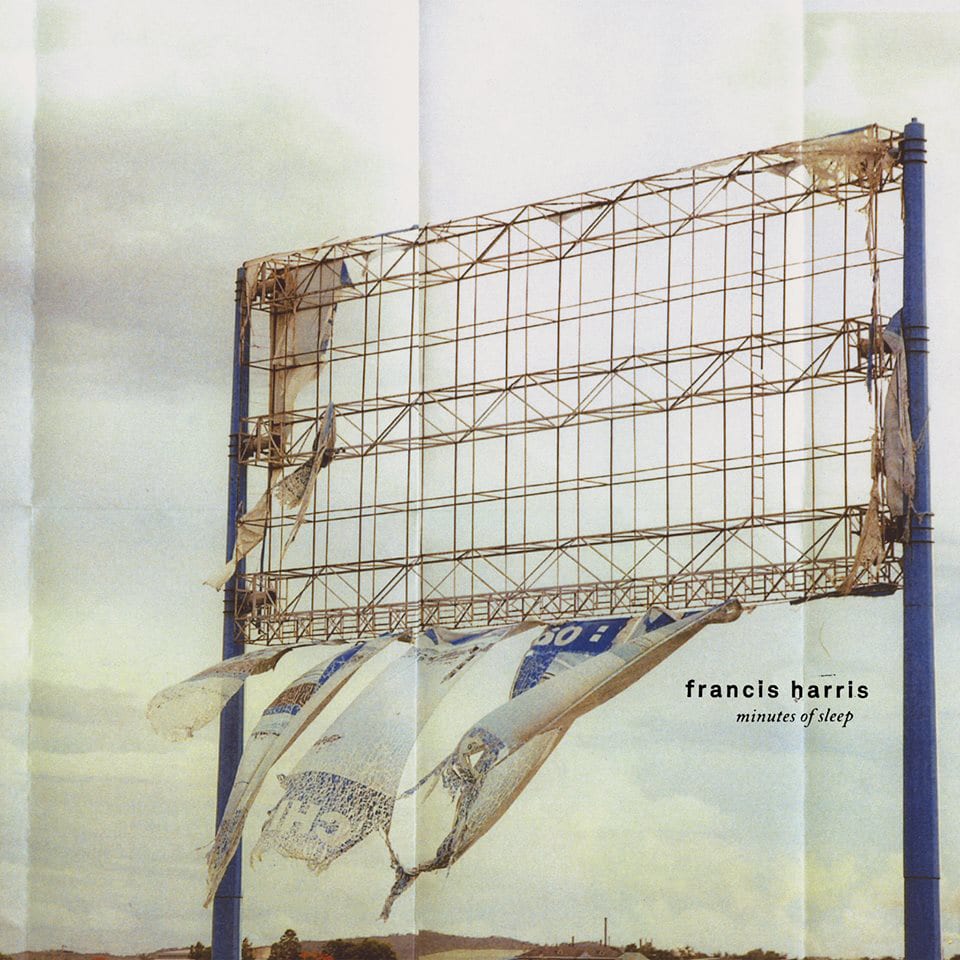
Francis Harris’ debut album, Leland, marked a momentous departure in his sound, his career, and his private life. Without lingering on biography, the album was characterised by a decisively organic approach informed by both personal experience and artistic evolution. Relinquishing the Adultnapper moniker and inaugurating his own Scissor & Thread label, the release’s pensive textures and emotive musicianship evidenced a resolve towards a more intimate mode of music production than he had previously displayed. The sheer honesty of the record was both humbling and moving, and on Minutes of Sleep Harris confidently evokes an equally poignant response while continuing to craft and refine his process.
An album that takes full advantage of its form, Minutes of Sleep works best when heard sequentially and in its entirety. Opening track Hems establishes its own vision for the narrative of the record, with crooning cello courtesy of Emile Abramyan and rich, viscous textures that swell into an anxious breakthrough. Dangerdream reflects on the doom promised in Hems with a sort of vacant somnambulism; a mournful introspection in the key of inertia, led by haunting trumpets and complemented by plush piano work. Radiofreeze provides a slightly more neutral buffer between the album’s emotionally taxing opening and it’s main body, more rhythmic than its predecessors while lower-paced than the rest of the album’s beat-driven tracks.
Album standout Lean Back epitomises both the album’s intent and its accomplishment: morose without indulgence, rhythmically driven but melodically focussed and deeply personal whilst inexplicably relatable, it is difficult to tear oneself away from. The track’s dubby bass line, beautifully married with an echoed rim shot, provides the perfect structure for Paulus’ trumpet work, which supplies the album’s characteristic sensitivity in reams.
You Can Always Leave, the album’s centrepiece, is a long-form, house-tinged meditation. The first track to feature vocalist Gry Bagøien, her dulcet tones coupled with Harris’ lyrics conjure a compelling dichotomy in Harris’ life – a difficulty to reconcile the merriment intrinsic to his career with the sorrow in his personal life.
Me to Drift, a slightly higher tempo deep house exercise led by Abramyan’s uplifting cello, affords some degree of respite. The longest on the album, it demonstrates Harris’ affinity for patient progression hinted at throughout the album. Similarly to Radiofreeze, What She Had cleanses the palette in a dub techno fashion before leading into the album’s third and final act.
A crescendo of beatless, fretful soundscapes bubbling away behind Bagøien’s lamenting vocal, Blues News escalates emotional stakes before carrying us into the album’s final house piece, New Rain. Perhaps the most danceable track on offer, its minor melodies don’t quite overpower its robust rhythmic flourishes, resulting in a blue-tinged boogie reminiscent of the deepest Smallville records.
Album closer and title track Minutes of Sleep perfectly bookends the journey that it represents – buried within the deep mire of grief there is a beat, a certain persistence of hope, life moving on. As the grief wanes, so the hope comes to the foreground, trumpets promise change while strings vow never to forget that which is lost – and in the background of it all, a distant trickling of feather-light keys, softly suggesting a promise of serenity in the aftermath.
As epilogues go, Terre Thaemlitz’ remix of Dangerdream is apt and expertly crafted, and the album works with or without it as a final track. However, the enormity of this 14-minute ambient introspection might be better enjoyed as a standalone piece.
Through an innovative approach to recording and production, Francis Harris has demonstrated versatility within the frameworks of house and ambient music that is seldom executed with such finesse. His measured choice of collaborators, careful consideration of technique, and most importantly his fastidious perfectionism have coalesced to form what is probably the finest ‘electronic’ LP of the year thus far.
Discover more about Scissor & Thread on Inverted Audio.